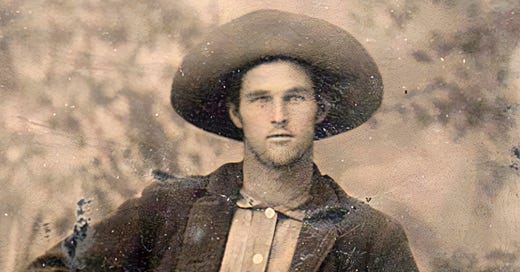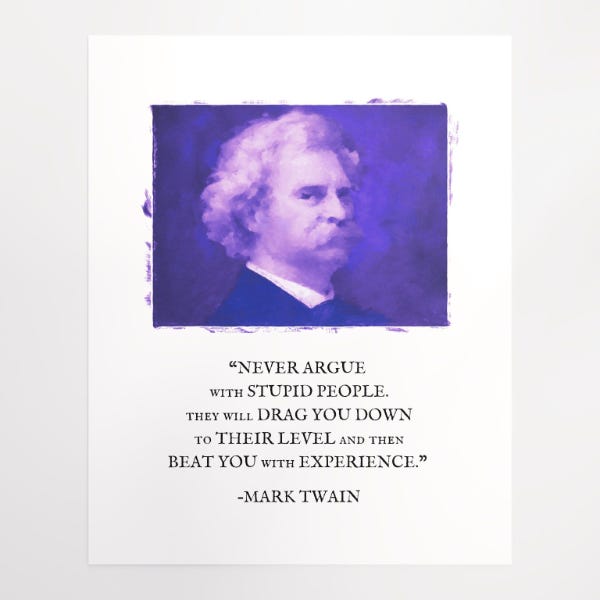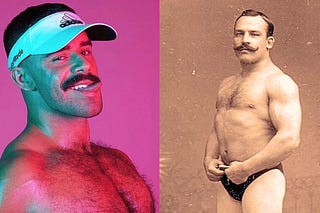
Several folks have recently attempted to “call me out” in YouTube comments for not being who I say I am. Well, those folks have had their comments deleted and access to the channel blocked.
Not because they were technically wrong. But because they were dumb, rude, and unkind. They broke the first rule of Collide Press: Be Kind…Or Rewind (Elsewhere).
The truth is, like a LOT of artists, I choose the artist name Clint Collide in order to create my work freely…and separately from my personal life.
I doubt this “news” comes as a surprise to many. If any.
FREEDOM TO BE MIGHTY REAL
In creative circles, pseudonyms—whether artist names, pen names, or stage names—are more than just aliases. They can be a gateway to creative freedom.
For folks like myself, the allure of a pseudonym lies in the shield it provides.
Renowned authors like George Eliot (born Mary Ann Evans) and Mark Twain (born Samuel Clemens) chose pen names to separate their private lives from their public personas. This separation allowed them to explore themes and ideas without the constraints of societal expectations or personal bias.
REINVENTION AND TRANSFORMATION
Creative aliases also offer a chance for reinvention. David Bowie (born David Jones) crafted an entire persona around his stage name, allowing him to push the boundaries of music and performance.
Similarly, Banksy, the elusive street artist, uses his pseudonym to maintain an air of mystery, enhancing the impact of his provocative works.
GENDER AND CULTURAL DYNAMICS
Pseudonyms can also challenge societal norms.
The Sisters Brontë, who all wrote under male pseudonyms, made literary history by defying the gender expectations of their times.
Charlotte, Emily, and Anne wrote under the names Currer, Ellis, and Acton Bell, enabling them to share their groundbreaking stories without prejudice.
(For the record, I almost wrote “without PRIDE and prejudice,” but remembered that Jane Austen wrote under her legal name.)
COLLABORATION AND COLLECTIVE IDENTITIES
Sometimes, a pseudonym represents not just an individual, but a collective.
The Italian art collective Wu Ming, meaning "anonymous" in Mandarin, uses shared pen names to emphasize the collaborative nature of their work. This approach blurs the lines of individual authorship, spotlighting the collective creativity.
Such was the case of Collide Press. Though recent developments have made “Clint Collide” a more accurate and personable pseudonym.
In many ways big and small, Clints is a more “real” me than I’m able to be in real life.
Whatever phase or stage of a creative journey, pseudonyms can be more than mere aliases. They can be instruments of creative empowerment and expression. And the reasons behind adopting a pseudonym are as diverse (and sometimes personal) as the artists themselves.
Honestly, I feel kinda bad for the now-blocked commenters who felt the need to “call me out.” Not only do their not understand history, they’re unhappy…with other people coloring outside the lines…with other people not following “the rules.”
Bless. Their. Mess.
The history of creatives using pseudonyms is long and well-documented. But like many strangers on the internet, history isn’t something these too-cool-for-school fools know much about. They’re usually bad at art, math, and science too. 😎🤣🥸
Thanks for reading!
Clint
















You have to do something to persuade yourself that it's okay to create, because you'll rarely find existential support even if you have verbal support at times. Not one of my art teachers failed to hate, hate, hate my artwork. Not because it was unskillful, either. My "take" was way outside anything they were prepared to related to. Bless their hearts!